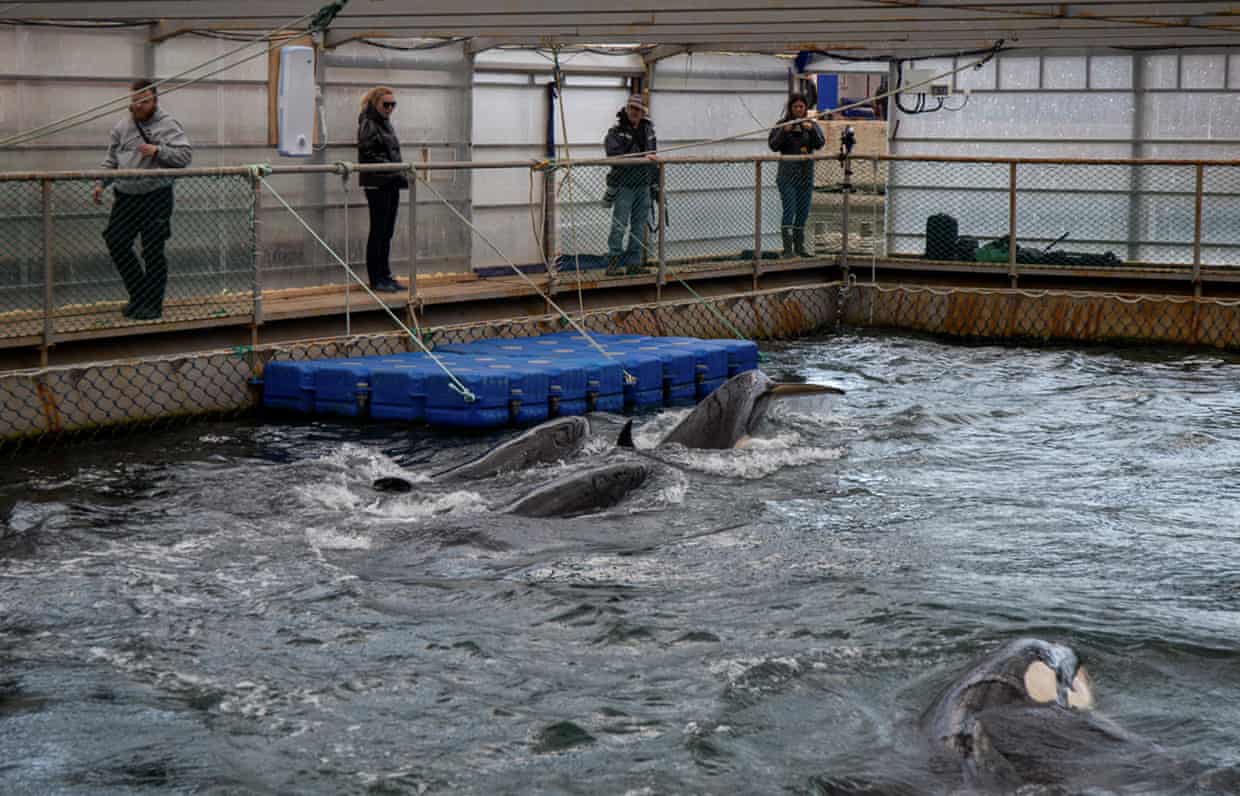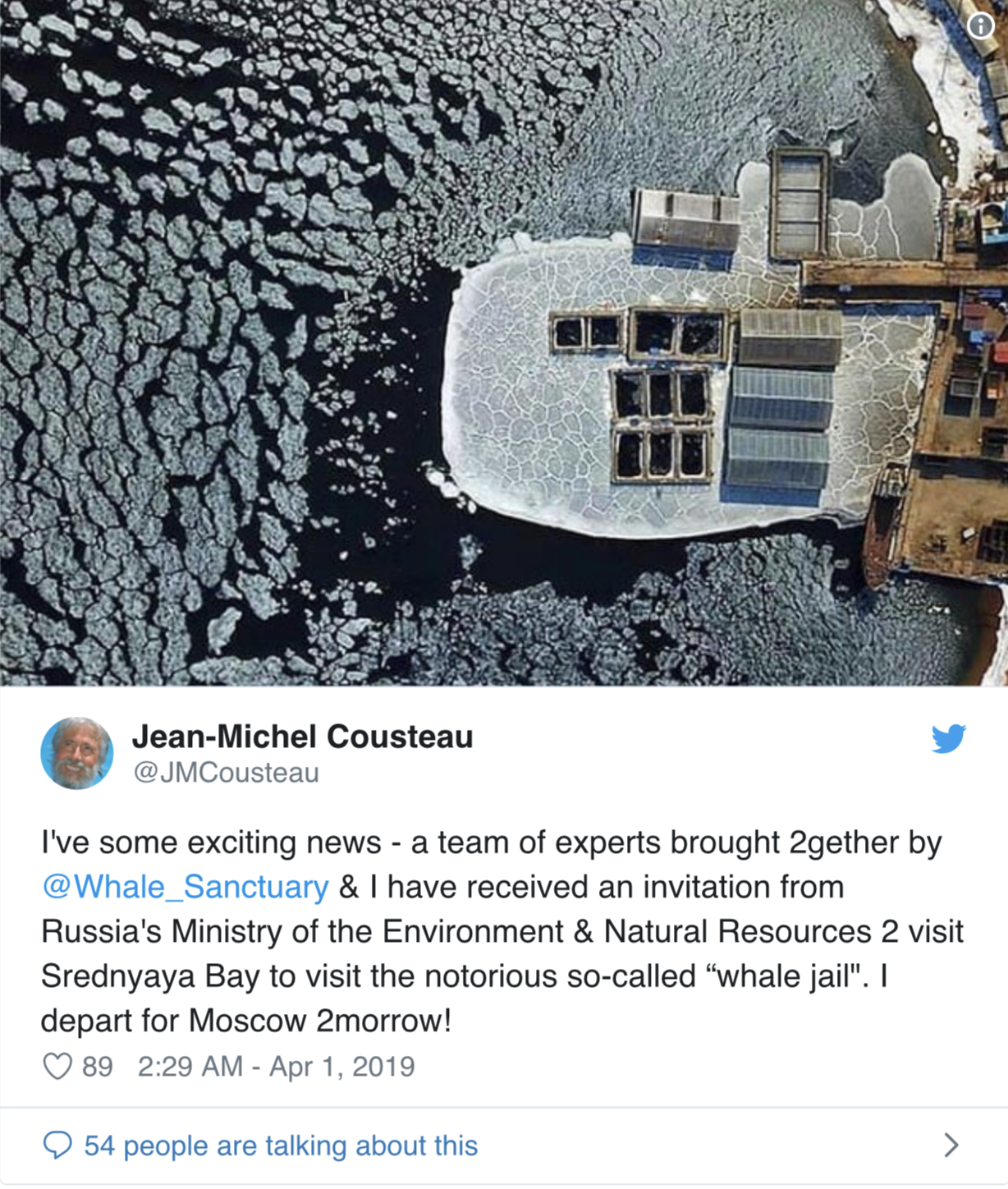- Inspiring People -
- 4mins -
- 266 views
Russia says it will release almost 100 orcas and belugas held in “whale jail”
The decision to free nearly 100 whales, stuck in holding pens after being captured for the Chinese aquarium trade, coincides with visit to enclosure by French marine expert Jean-Michel Cousteau.
Russia Takes First Steps Towards Releasing Nearly 100 Orcas and Belugas From ‘Whale Jail’
Almost 100 captive whales seized by the Russian government in the country’s Far East before they could be exported to Chinese marine parks will be evaluated as a first step toward freeing them, officials said last week. The mammals have been held in what became known as the “whale jail” — watery pens in Srednyaya Bay near the Russian city of Vladivostok.
10 orcas and 87 belugas Are being evaluated for a summer release
Russian officials say experts are evaluating dozens of captive whales with the hope of ultimately freeing them from holding pens that have been internationally dubbed the “whale jail.”
The New York Times reported this week that Russia’s minister of natural resources, Dmitri N. Kobylkin, said the situation is unprecedented because of the number of animals ―10 orcas and 87 belugas ―that need to be released.
The whales were captured in the summer of 2018 by companies intending to sell them to aquariums and marine parks, including facilities in China. Those companies brought the whales to holding pens in Srednyaya Bay, near Vladivostok on the Pacific coast.
But a criminal investigation―sparked by drone footage of the pens published in October—determined the animals had been caught illegally. The Russian government said in January it had seized custody of the whales, according to the New York Times.
Source: HuffPost

How did these animals end up in whale jail in the first place?
In China, the market for marine mammals is booming. The country is home to 76 theme parks that revolve around dolphins and other cetaceans, with at least 25 more planned.
These parks are a sight to behold, but behind every beluga whale trick show there’s a dark backstory.
The demand for marine mammals to fill these burgeoning theme parks is fueling the illegal capture of cetaceans from the wild.
Last year, roughly 100 whales—a mix of belugas and orcas—wound up in small, crowded enclosures there. They’ve been seen surrounded by sea ice, which threatens them with hypothermia.
Now, the Kremlin is finally moving to free these poor creatures, which, allegedly, had been captured illegally by four Russian companies working together to sell them to Chinese aquariums.
These animals can be worth millions of dollars each.
Russian authorities first announced last month they would be bringing criminal charges against the companies holding the animals.
Russia is the only country in the world that allows the live capture of marine mammals—but for scientific or educational purposes only. Capturing them to sell for entertainment is illegal under its laws.
The animals’ impending freedom follows a visit to the enclosure last week by acclaimed French oceanographer Jean-Michel Cousteau, the son of Jacques Cousteau, whose fascination with the seas helped drive much of their exploration.
Jean-Michel will be working with a international team of scientists to figure out how to safely release the 11 orcas and 87 beluga whales that remain within the enclosures, according to CBC.
Source: Earther.Gizmodo



